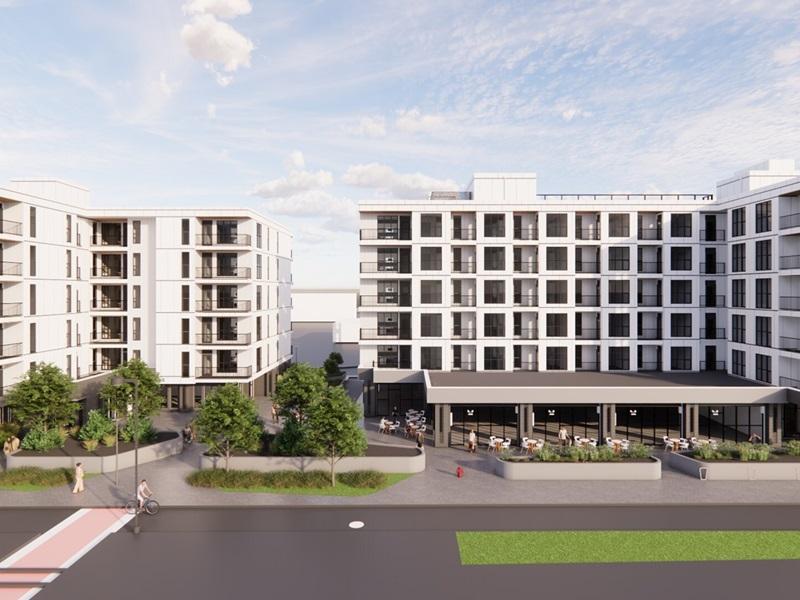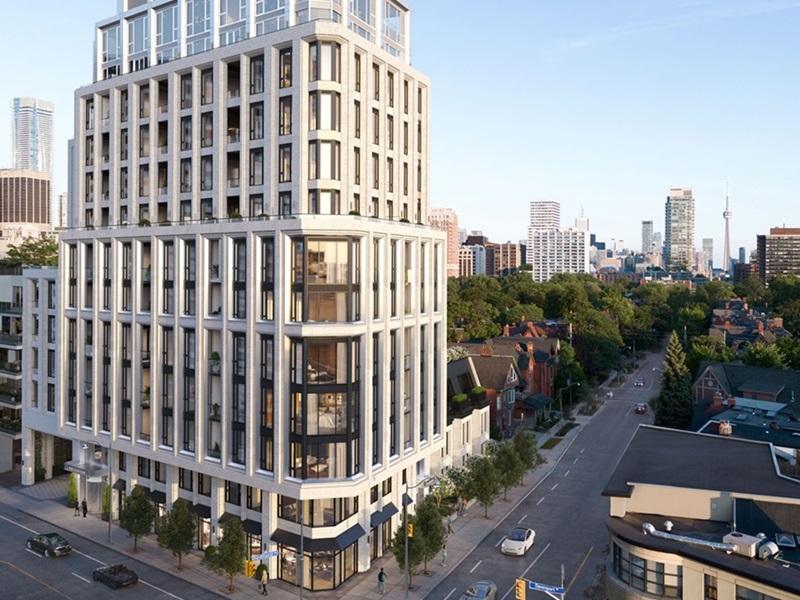
Sam Tsoumas is a partner and co-founder of RoseFellow in Montreal. (Courtesy RoseFellow)
If you’re an industrial tenant in Montreal, lock in your renewal as soon as possible.
That was the message delivered by Charlie Deeks, chief investment officer of Pure Industrial Real Estate Trust (PIRET), during the Montreal Real Estate Forum, which was held online Oct. 6 and 7.
Deeks noted industrial vacancy in the city has declined from about six per cent two years ago to about two per cent, representing a “pretty incredible” 67 per cent absolute percentage drop. What’s more, the vacancy rate for buildings with high ceiling clearance is well below one per cent.
In terms of new supply, Montreal is “probably the tightest market in Canada, if not North America,” he said. “There’s really zero options for tenants” and it will take a long time before new supply starts to make an impact on the city.
Montreal industrial vacancy still declining
Contrary to what some people believe, the industrial vacancy rate has continued to decline during the coronavirus pandemic and space is increasingly difficult to find, said Paul-Éric Poitras, managing partner of brokerage NAI Terramont.
“We are very busy. The phone is ringing,” he said. “I did not see that coming.”
Deeks said his view on rental rate growth in Montreal is “the sky is the limit.” He noted that once vacancy rates fell below three per cent in Toronto and Vancouver, rental rates in those cities shot up and “we’re starting to see that in Montreal.”
Rents per square foot are “well into the $7 on average” and those numbers are only being kept down by large old and obsolete facilities, he said.
“The average net asking rate is over $13 in Vancouver. In Montreal, it’s still at $7-$7.75. There’s definitely a huge growth opportunity.”
Leasing could hit $10-$12 per square foot
Sam Tsoumas, a partner at real estate development firm RoseFellow, said he can easily see class-A industrial deals in Montreal hitting $10, $11 or $12 per square foot in the next few years. “Get ready to spend more on rent,” he warned tenants.
Deeks said PIRET has been very busy in Montreal over the last two years, adding about four million square feet of industrial space and putting the company in the top five ownership groups in the city.
It now has 22 per cent of its Canadian portfolio of about 20 million square feet in Montreal.
“It’s a good time to be a landlord,” he said. “If you are a tenant in a landlords’ market, you have to play the game. There’s really nowhere for you to go.”
Steven Bouffard, executive director of leasing, office and industrial at Cominar REIT (CUF-UN-T), suggested industrial tenants should be careful about securing their premises, especially for the next five years.
Demand has been high during the COVID-19 crisis on the medical logistics front, with the sector looking for places to stock masks and other personal protective equipment, Bouffard said. Users are increasing inventories and moving from just-in-time to just-in-case inventory systems.
As a result, Cominar is being very careful in the way it leases, because of pressure it’s facing from big-space users in logistics and distribution who are seeking sites, Bouffard said.
Leasing market “like an arms race”
Montreal’s industrial market has “become almost like an arms race” between multiple developers trying to secure large tracts of land, said Tsoumas. The pandemic may have accelerated the development of major e-commerce distribution centres by as much as five years, he said.
Multi-million dollar transactions are being concluded through Zoom, with the parties involved never physically meeting in person. “It’s changed the way business has worked,” he said.
Tsoumas said that for years, a 100,000- to 125,000-square-foot industrial box in Montreal was considered enormous. Now he’s seeing demand for buildings of 300,000 to 500,000 square feet, something that will likely continue.
Build-to-suit industrial is becoming a reality in Montreal, he added: “Tenants are becoming more comfortable with the rates being proposed by developers for build-suits, as opposed to existing renewals.”
In Montreal, industrial tracts in the airport-Saint-Laurent-Dorval corridor are in high demand, Tsoumas said. There is also plenty of action on the Highway 417 corridor on the Ontario-Quebec border.
“We see enormous industrial potential along that corridor either for groups that want to be on the Quebec side going toward Ontario, or vice-versa.”











